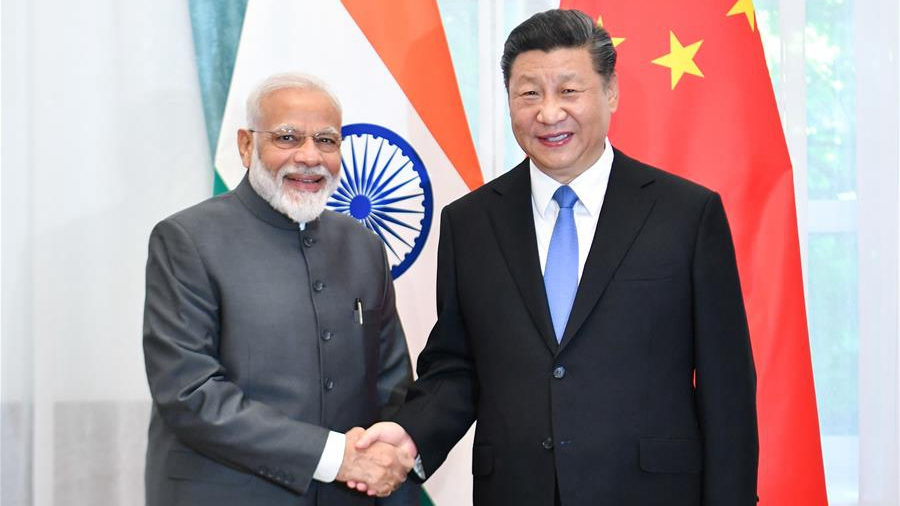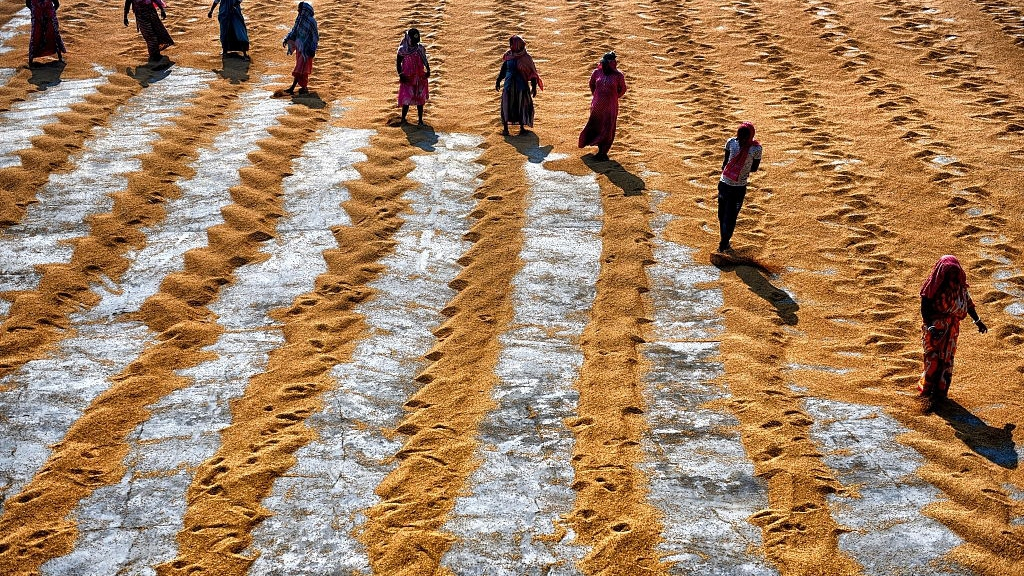
Chinese President Xi Jinping meets with Indian Prime Minister Narendra Modi in Bishkek, Kyrgyzstan, June 13, 2019. /Xinhua Photo
Chinese President Xi Jinping meets with Indian Prime Minister Narendra Modi in Bishkek, Kyrgyzstan, June 13, 2019. /Xinhua Photo
When Indian Prime Minister Narendra Modi and Chinese President Xi Jinping met in the central Chinese city of Wuhan in April last year, they agreed to confer regularly at "informal summits" to keep tensions from escalating to a point that would be detrimental to their regional commitments.
The first such summit since then is being held this week in southeastern India. That it is taking place against the backdrop of recent tension-building events in Kashmir has, in the eyes of the international media, created a cloud of uncertainty over the deliberations.
However, Chinese and Indian government sources suggest the disputed Himalayan region won't be a main topic of the talks in Chennai.
"In Chennai, Xi will have an in-depth communication with Modi on issues that have overall, long-term and strategic significance on bilateral relations, set the tune and guide the direction for future development of the ties, and speak to the world in unanimous voice so as to inject positive energy into the world full of uncertainties," China's Xinhua News Agency said.
"The forthcoming Chennai Informal Summit will provide an opportunity for the two leaders to continue their discussions on overarching issues of bilateral, regional and global importance and to exchange views on deepening India-China Closer Development Partnership," the Indian Foreign Ministry said in a statement.
India's decision in August to renounce the special status of Kashmir has angered Pakistan, which also claims the territory, which is split between them. China, which also controls a portion of the area, called the move "unacceptable."
'Better management'
But at their Wuhan Summit, Xi and Modi appeared to signal their determination in this new era to avoid letting the long-running border issues between the two countries weigh down too heavily on their relationship.
Professor Li Li of Tsinghua University's Institute of International Relations told People's Daily in Beijing that the consensus reached in Wuhan focused more on cooperation as well as better management of the border concerns.
One expert quoted by Bloomberg has suggested that India will have to move past its frustrations with China's stance on Kashmir as well as Beijing's warmer ties with Pakistan and concentrate on the broader terms of its ties with China.
"India has to have a relationship with China, it needs to engage with China and bring down temperatures as such. That's what this meeting may achieve," said Harsh Pant, professor of international relations at King's College London.
One can even say that this summit has come at an opportune time to test the template that was negotiated last year. Indian sources quoted by Reuters say Modi and Xi will be aiming to prevent a further deterioration in relations and the expectation is they will agree on a set of confidence-building measures and people-to-people exchanges.
Chinese officials, such as Chinese ambassador to India Sun Weidong, have tended to emphasize the economic development nature of the meeting between the leaders of the world's most populous nations and the second- and fifth-largest economies.

India wants to sell more rice to China. /VCG Photo
India wants to sell more rice to China. /VCG Photo
"In economy and trade, China has long been India's largest trading partner and India is China's largest trading partner in South Asia," Sun noted.
Indeed, Bloomberg expects trade, especially the Regional Comprehensive Economic Partnership – a proposed Asian free trade agreement – to be a focus of the summit at a time when global commerce is under pressure because of the ongoing China-U.S trade war.
CNN notes that China is seeking to increase investments in India, with which it has a trade surplus in excess of 50 billion U.S. dollars.
Growing investment
It cites the smartphone industry as a major success for China in India, with Beijing-based Xiaomi poised to become No.1 in the market.
"Beijing will also be hoping that India could be a big market for telecoms giant Huawei, which is facing increasing pressure and restrictions from the U.S. and its allies," it added.
Indian companies are also actively expanding in the Chinese market, with a cumulative investment of nearly one billion dollars, Sun notes though this is dwarfed by the eight billion U.S. dollars that Chinese firms have spent in India.
India's Hindustan Times said India remains concerned about the wide trade gap with its neighbor. The paper quoted local officials as saying that there has been "encouraging progress" on such regulatory issues as access to the Chinese markets for Indian products including rapeseed, soya, basmati rice and tobacco leaves, though this is yet to translate into greater exports.
At the same time, the Times of India claimed China "is particularly keen to get India on board in its public opposition" to the trade war that U.S. President Donald Trump is waging.
So, there is a lot to play for in this informal summit and much may depend on how the personal rapport between the leaders of the two Asian giants that was established in Wuhan develops further.